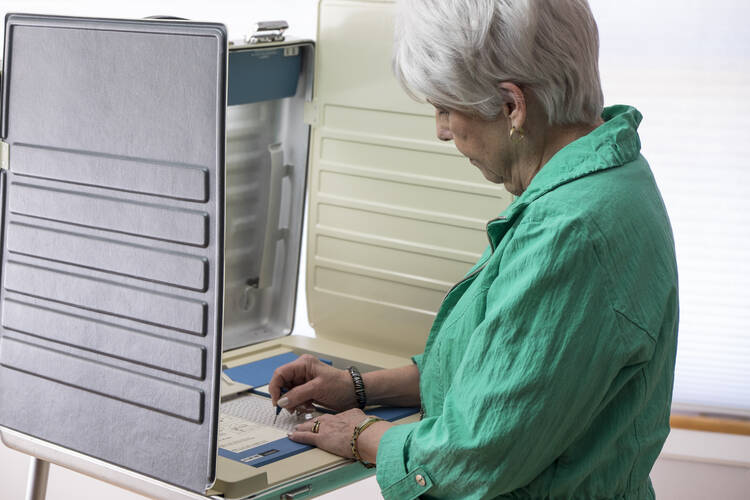One issue that went unmentioned in Tuesday’s Democratic presidential debate was voter participation, and in particular the unapologetic movement to reduce the number of citizens casting ballots in local and national elections. The New York Times reported on Thursday on such an effort in Kansas, which now requires proof of citizenship (a birth certificate, passport or naturalization papers) before someone can register to vote. As a result of this state law, more than 36,000 Kansans are being removed from voter rolls; they had all made an effort to register at places like the registry of motor vehicles and the Kansas State Fair, but they did not get around to providing proof of citizenship to a county clerk’s office within the required 90 days.
These 36,000 Kansans made an effort to register that was pointless, perhaps misleadingly so. Trying to become a voter in Kansas seems to be like reserving a hotel room online: If you don’t notice that your wi-fi went out for a few seconds or that you didn’t get a confirmation email, you’re out of luck. You’ve done nothing but waste your time. One solution would be to ban voter registration drives at state fairs and other places where people are unlikely to be carrying around their birth certificates, but that seems to violate federal law, so Kansas is content to let residents scribble on a form and pretend for a while that they have the right to vote.
The Times reports that the list of potential voters to be purged skews young, with 20 percent between the ages of 18 and 20. County clerks are not notifying residents that they’re being dropped, and the Times writes that Secretary of State Kris W. Kobach “said culling the list would help address complaints from county clerks that notifying people of the law’s requirements was costly and often ineffective.” Mr. Kobach is quoted as saying most on the list “never had any intention of voting in the first place.” If only political campaigns were that sanguine about letting go of people who pledge contributions and don’t immediately send a check…
It’s telling that Mr. Kobach is so concerned with lightening the workload of county clerks. The idea that public officials should encourage political participation, and make it easier to perform what should be a civic duty, seems quainter with each passing year. County clerks could easily match voter registration forms to birth certificates (which would deprive the state’s Office of Vital Statistics of the $15 it gets for each certified copy of a birth certificate, a kind of poll tax). But that goes against the now-fashionable idea that Americans must go through many hoops to prove themselves worthy of having a voice in our democracy.








